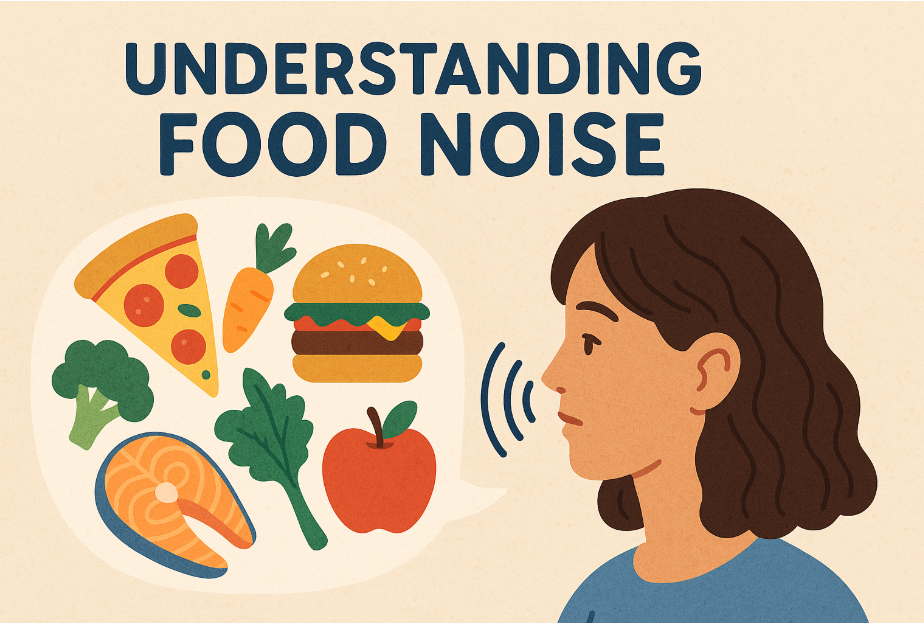Understanding and Managing Food Noise
Food noise has become a popular topic, especially among people on a health journey or trying to lose weight. Food noise refers to the constant thoughts, urges, and preoccupation with food that can make us feel hungry when we’re not, influence poor food choices, and cause us to overthink meals. It affects our eating behaviors and can make adopting healthier habits more challenging.
Food noise is a completely normal experience and is driven by a complex interaction between our biology and our environment. There are two main types of hunger that fuel food noise:
- Physical hunger: When our body needs energy, it sends signals to the brain that trigger thoughts about food.
- Reward-based hunger: Driven by the pleasure and satisfaction we get from eating (especially high-calorie, sugary, and fatty foods), this type of hunger can increase food noise regardless of physical need.
Our brain is wired to respond to food cues—sights, smells, sounds, and even memories. This historically has helped humans survive in times of food scarcity. However, today we are surrounded by highly palatable, calorie-dense options, making food noise more constant. Dieting or restricting food can worsen food noise because the brain may interpret the restriction as a sign of famine, driving stronger urges to eat.
Food noise is normal, but if we don’t know how to manage it, it can interfere with weight loss or overall health goals—especially when eating fewer calories. Fortunately, there are strategies to help quiet the noise:
- Eat consistently every 3–4 hours to stabilize hunger hormones.
- Build balanced meals with protein, fiber (vegetables, fruit, whole grains), and healthy fats.
- Plan your meals to reduce decision fatigue and off-plan eating.
- Remove trigger foods from your home and replace them with healthier options:
- Candy → protein bar, protein shake, fruit, or Greek yogurt
- Chips → air-fried veggie chips, whole grain crackers with hummus, or lightly salted popcorn
- Include treats intentionally instead of banning them completely:
- “I will enjoy ½ cup of ice cream on Friday night after dinner.”
- Stop labeling foods as “good” or “bad,” as this increases guilt, shame, and disordered thinking.
- Reduce stress through healthy coping strategies:
- Take a 10-minute walk instead of grabbing a candy bar
- Practice deep breathing or meditation instead of turning to sweets or alcohol
- Do a 30-minute workout to boost mood and reset your mindset
- Improve sleep habits to get 7–8 hours each night.
- Pause before eating and ask yourself: “Am I truly hungry, or is this food noise?”
Conclusion
Food noise isn’t something we can eliminate entirely, but we can learn to manage it. By eating consistently, planning balanced meals, reducing environmental triggers, and incorporating mindful habits, you can quiet the chatter and make intentional decisions aligned with your health goals. When you understand what drives food noise and take proactive steps to stay in control, healthy eating becomes less of a struggle and more of a sustainable lifestyle.
